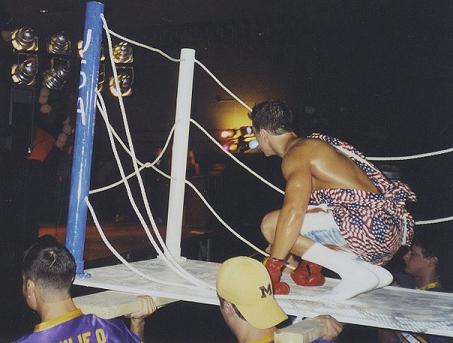
I’ve become fascinated with websites of the deceased, who are generous enough to share their final thoughts with the world.
Never before has there been such an easy way for people to express themselves. And of course, once something is posted on the internet, it will live on forever.
Derek Miller, who passed away on May 3rd, had a prepared message for his blog – where he had been documenting the progression of his cancer.
You can read his amazingly powerful last post by clicking here.
Then there’s the suicide note from Bill Zeller, a talented computer programmer who left an explanation of why he took his own life. It’s a 4000 line note that’s heartbreaking as well.
And we all know Randy Pausch – who became famous for sharing his wisdom at his last lecture.
These people all had the unfortunate (or fortunate?) knowledge of their impending death. They were able to plan for it.
But most people aren’t able to plan for their death…
Which leads me to the question, should we?
Pausch was able to share as much of him self as he possibly could with his children. He made videos for them, wrote letters for them in the future, and even wrote a book.
As all premature death is absolutely heartbreaking and tragic, I’d hate for my nephew, Landon, to be left without any of my thoughts.
Not because I think I’m so brilliant but because I’ve lived for a lot longer than he has, and with that comes some insight and experience and wisdom.
Ernest Becker’s classic, The Denial of Death reminds us that when it comes to our mortality, there is no uncertainty principle. We will die, he reminded us. We cannot not die.
Yet, it is what we do in a doomed attempt to refute the irrefutable first principle that defines us and gives our lives meaning.
Becker believed that each of us makes sense of our existence through an “immortality project” – a personal mission that allows us to cheat death. Whether it is by turning out babies or books or blog posts or students, creating companies or helping to build them, or collecting model trains or Facebook friends – whatever they might be – we all have our immortality project(s).
Here’s a question: If you knew you were going to be dying soon, and had the choice for your kids or nieces/nephews to have videos of you talking to them would you? Would you write letters for them?
What’s on the internet will live forever, and that’s a crazy thought. Things that are said about me today will always be available. That brings into the discussion of legacy. When you die, how do you want people to remember you?
(What also astonishes me about this is how many people on the internet are willing to tarnish their reputation for a quick buck. Reputation is truly priceless. For example, I offer a 100% money back guarantee for MBT. I’m very proud of that the fact no one has ever asked for a refund because my program actually works – but if they did – I’d be a complete idiot not to honor that – wouldn’t I?! Yet…)
Not only would my prospective clients be able to see those complaints online but my nephew would see that one day too.
I’m amazed that more people don’t consider what they do online to be a part of their legacy.
What if you God forbid passed away tomorrow?
While we’re on the topic, if you’ve ever wondered what the regrets of the actual dying are you must read this post by Bonny Ware – who worked in palliative care for many years. When her patients were questioned about any regrets they had or anything they’d do differently 5 common themes came up again and again.








